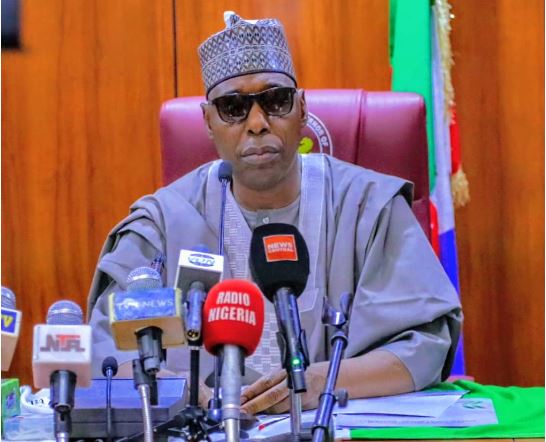Borno State Governor, Babagana Zulum, has proposed that Nigeria consider looking to China’s leadership selection process as a potential model to improve its own governance. This suggestion came during the 24th National Conference of the Nigerian Institute of Agricultural Engineers, which took place at the Nigerian Society of Engineers’ headquarters in Abuja.
According to a statement by Zulum’s Senior Special Assistant on New Media, Ahmed Bundi, the governor’s remarks have sparked discussions about the benefits of a structured, merit-based leadership system over Nigeria’s current electoral approach.
Governor Zulum spoke candidly about the Chinese model, explaining that it focuses on selecting leaders based on proven integrity, past performance, and an evaluation of their capabilities. “In China, they practice selection rather than direct election,” Zulum explained. “They first identify credible leaders with records that prove their integrity. They carefully assess the track record of those who have served in public office, and then they select the best individuals. Only then are these chosen candidates subjected to an election process.”
For Zulum, such a method could help Nigeria overcome some of its challenges by placing a greater emphasis on quality and competence in leadership selection. He argued that Nigeria could potentially see better governance if it had a system that rigorously assessed the experience, skills, and integrity of leaders before they entered office. Zulum believes this structured approach could lead to more capable leaders who are well-equipped to address the country’s complex challenges.
However, Zulum didn’t place the responsibility of change solely on leaders. He highlighted the importance of both good leadership and responsible followership, emphasizing that governance is a two-way street. “Our problem here in Nigeria is not only about leadership but also followership,” he said. “We must focus on both aspects, not just one. As much as we need good leaders, we also need citizens who can tell right from wrong and make responsible decisions.”
Governor Zulum pointed out that strong governance requires active, informed citizens who support positive change and hold leaders accountable. In his view, good leadership cannot thrive without the backing of a supportive and conscientious population. By encouraging both responsible leadership and followership, Zulum believes Nigeria can build a more cohesive and effective society.
The governor went on to address another key issue facing Nigeria: food security. With the population continuing to grow, the country faces an increasing need to strengthen its agricultural sector to ensure food is readily available for all citizens. Zulum expressed hope that technological advancements could play a major role in addressing these food security concerns.
“This conference offers a unique chance to exchange ideas, build partnerships, and explore the ways that emerging technologies can transform agriculture,” Zulum noted. He highlighted the importance of innovation, explaining how technology like artificial intelligence (AI) and biotechnology could improve Nigeria’s farming practices. By adopting these tools, he said, the country could build resilient and sustainable food systems capable of supporting its growing population.
Governor Zulum encouraged conference attendees and Nigerian agricultural experts to explore how new technologies can make agriculture more efficient and productive. He believes that integrating advanced tools and methods into farming can help Nigeria create a more secure and sustainable food supply. With AI, for example, farmers could analyze crop data more effectively, making smarter decisions that improve yields. Biotechnology, on the other hand, could lead to the development of crop varieties that are more resistant to pests, diseases, and climate changes.
Zulum’s vision for Nigeria’s agriculture goes beyond short-term fixes, as he aims to build a foundation for long-term food security emphasizing that technology can make a lasting impact on farming in Nigeria, but must be coupled with strong policies and support for farmers.




